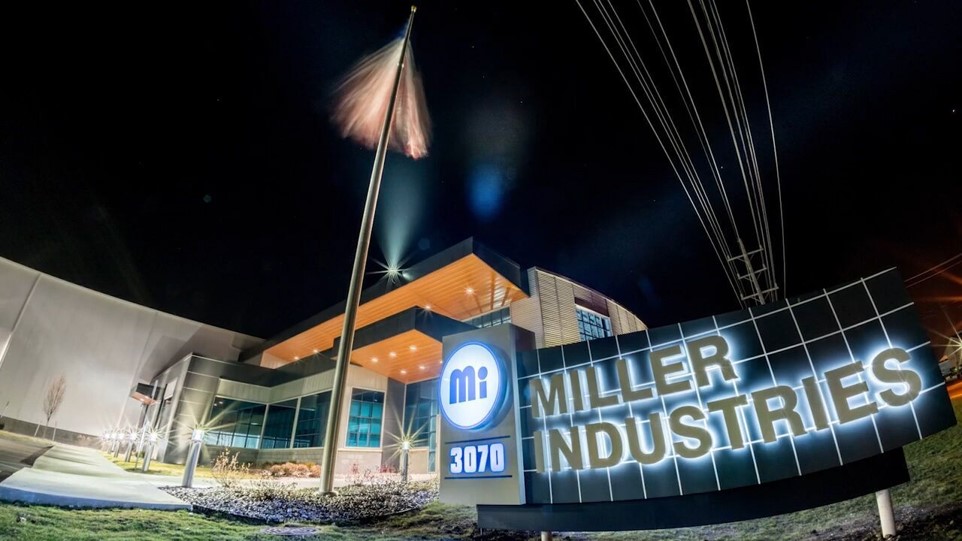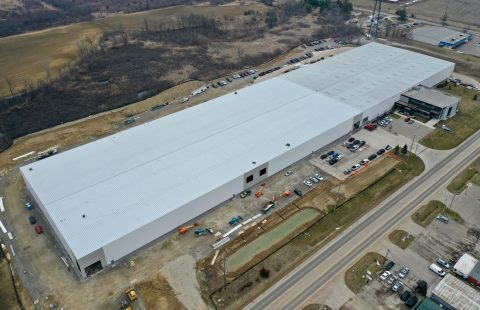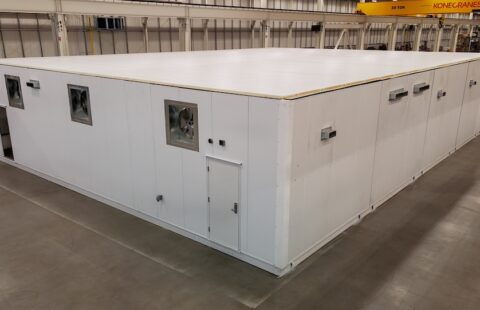
Unlocking Efficiency: The Advantages Of Off-Site Utility Manufacturing
Off-site utility manufacturing is revolutionizing the construction and infrastructure industries by offering a more time-efficient and cost-effective approach to building essential systems. As the demand for faster, higher-quality construction grows, off-site manufacturing is becoming increasingly vital. In this blog, we’ll explore what off-site utility manufacturing is and highlight its key advantages.
What is Off-site Utility Manufacturing?
Off-site utility manufacturing relocates the production of essential building systems from the construction site to a controlled factory environment. Unlike traditional on-site manufacturing, where components are assembled directly at the project location.
In a controlled factory setting, skilled technicians install components such as electrical systems, plumbing, and HVAC units using advanced equipment and technologies. Quality control measures are rigorously enforced to ensure precision and performance.
The modular nature of off-site manufacturing allows for prefabricated modules that seamlessly fit together during on-site installation, reducing construction time and improving efficiency.
Advantages of off-site utility manufacturing include enhanced quality control, reduced construction time, cost savings, improved safety, and greater design flexibility. This approach drives efficiency in building system integration.
Types of Utilities Manufactured Off-site
Electrical Systems
Off-site manufacturing includes the integration of electrical components such as control panels, wiring harnesses, switchgear, transformers, server racks, medium and low voltage switchgear, power transformers, control systems, and UPS servers.
These electrical systems are installed by experts to ensure seamless integration and optimal functionality during installation.
HVAC Systems
Heating, ventilation, and air conditioning (HVAC) systems are critical for maintaining indoor air quality and thermal comfort in buildings. These prefabricated HVAC systems are designed for easy installation and superior performance.
Prefabricated Utility Corridors (racks)
Prefabricated utility corridors are pre-built sections that house various utility systems such as electrical, plumbing, and HVAC. These modular corridors are constructed off-site and then transported to the construction site for rapid assembly. They streamline the installation process, reduce on-site labor, and ensure efficient utility distribution throughout the building.
Modular Mechanical Rooms
Modular mechanical rooms are self-contained units that house mechanical equipment such as pumps, compressors, generators, chillers, and boilers. These prefabricated rooms are factory-built with all necessary components integrated, providing a compact and efficient solution for housing essential mechanical systems in buildings.
Key Advantages of Off-site Utility Manufacturing
Enhanced Quality Control
Manufacturing a central utility plant (CUP) in a controlled factory environment allows for stringent quality control measures. Standardized processes and inspections ensure that each component meets high standards, significantly reducing the risk of defects and inconsistencies.
Time Efficiency
One of the most significant benefits of off-site utility manufacturing is time efficiency. By allowing simultaneous on-site and off-site work, this approach drastically reduces project timelines by as much as 30%. Components can be installed quickly once they arrive on-site, streamlining the overall construction process.
Cost Savings
Off-site manufacturing often leads to considerable cost savings. The use of automation and efficient processes lowers labor costs while reducing waste and precise material usage decreases material costs. Additionally, minimizing on-site disruptions and delays further lowers project expenses.
Improved Safety
Manufacturing in a controlled environment reduces the risks associated with on-site construction, such as accidents and injuries. Safer working conditions in factories lead to fewer safety incidents and a healthier workforce. This also means fewer high-risk activities need to be conducted on-site.
Environmental Benefits
Off-site utility manufacturing offers several environmental benefits. By generating less waste and optimizing resource management, it supports more sustainable construction practices. The efficient processes used in factories also contribute to a lower carbon footprint compared to traditional on-site manufacturing.
Flexibility and Scalability
Off-site manufacturing provides significant flexibility and scalability. Production can easily be scaled up or down to meet project demands, and the approach can be adapted for various project sizes and types. Customization options are available to ensure that specific project requirements are met effectively.
Enhanced Collaboration and Coordination
Off-site manufacturing fosters better collaboration between design and manufacturing teams. Improved communication, streamlined processes, and advanced technologies like Building Information Modeling (BIM) ensure that projects are managed more effectively from start to finish.
Challenges and Considerations
While off-site utility manufacturing offers numerous benefits, there are also challenges to consider. These may include logistical issues, transportation costs, and the need for precise planning and coordination. However, with proper strategies and best practices, these challenges can be effectively managed, paving the way for successful implementation
FAQs
What are the advantages of off-site production?
Off-site production offers advantages such as enhanced quality control, time efficiency, cost savings, improved safety, environmental benefits, flexibility, scalability, and enhanced collaboration and coordination without compromising maintenance needs.
What is offsite manufacturing?
Off-site manufacturing involves producing components or systems in a controlled factory environment away from the construction site, in contrast to traditional on-site manufacturing methods.
What are the two main forms of off-site manufacturing?
The two main forms of off-site manufacturing are modular construction, where pre-built modules are transported and assembled on-site, and prefabrication, where individual components are manufactured off-site and then transported to the construction site for assembly.
How does offsite construction improve sustainability?
Offsite construction is more sustainable because it reduces material waste and energy consumption. Factories can better manage resources and reduce excess material usage by recycling and reusing materials more efficiently. Also, fewer transportation needs and a shorter on-site construction period decrease the overall carbon footprint of the project.
Does offsite construction allow for customization?
Offsite construction allows for high levels of customization. While components are built in a factory setting, they can be tailored to specific project needs, allowing for unique designs and specifications. The precision of factory production ensures that even highly customized elements are manufactured to exact standards.
How does off-site utility manufacturing improve project timelines?
Off-site utility manufacturing reduces construction time by allowing work to be done simultaneously on-site and off-site. Prefabricated modules are ready for quick installation, cutting overall project timelines significantly.
What is the impact of off-site utility manufacturing on project costs?
By reducing labor costs, material waste, and on-site disruptions, off-site manufacturing can lead to significant cost savings. It also allows for better resource management, further reducing overall expenses.
What safety benefits does off-site utility manufacturing offer?
Off-site utility manufacturing occurs in controlled environments, reducing on-site construction risks and minimizing safety incidents. This leads to a healthier workforce and fewer accidents.
Conclusion
Off-site utility manufacturing is transforming the construction and infrastructure industries with its many advantages, including enhanced quality control, time efficiency, cost savings, improved safety, environmental benefits, flexibility, and better collaboration. By adopting this innovative approach, companies can achieve superior project outcomes and meet the growing demands of the modern construction landscape.
As a leader in off-site utility manufacturing, Miller Industries is dedicated to providing high-quality products and services. Located in Fenton, Michigan, Miller Industries was founded in July 2014 and serves a diverse range of industries across North America. Our expertise includes modular mechanical systems, modular electrical systems, air handlers, conveyor systems, structural steel projects, modular substations, stairs and platforms, baggage and package handling systems, and other powder-coated metal products.
At Miller Industries, we believe that our people are the heart and soul of our organization. Our team of skilled laborers, welders, engineers, and project managers work together to create a welcoming culture to drive innovation and technology. Our commitment to quality and customer satisfaction has earned us a reputation as a trusted provider for automotive, industrial, healthcare, and institutional customers worldwide.
Choose Miller Industries for your next project and experience the difference our expertise and dedication can make. Contact us today to learn more about our services and how we can meet your off-site manufacturing construction needs with precision and reliability. To learn more about us, visit Miller Industries.


